This Cold Care Tea recipe is a simple and delicious herbal tea that will chase away a cold.
Having a ritual in self-care can be the greatest benefit to our health transitioning out of the timeless months of late winter and into the blossoming months of spring. We widen our eyes to the sun slowly creeping back to whatever side of the globe we are on. The end of winter may eventually bring forward changes in our lives as well as making space for new experiences come springtime.
Depending on where we are in the world, being in rhythm with these changes of season brings us longevity. It is truly nature’s gift of healing and support. Not only physical health, but our mental clarity, deep rest, and renewed vitality are important during this time, not to mention all year long.
“Teas are one of the best and easiest ways to nourish the body with nutrients and an act of preventative health when made part of our daily lives.”
Some regions experience rainy seasons, some countries and climates experience more sunlight than dark, and some are pretty hot and sunny all year round. If we embrace the subtleties of weather changes, the climates, how the animals migrate during different times of year, hours of light and dark, temperature changes from dusk to dawn, we can come to know ourselves better as an integral part of nature, not separate from.
Foods and herbs are the cornerstone of changing seasons, when and how they flourish, ripen, pollinate and recede back into the earth. These transformations not only demonstrate miraculous resilience of the plant world, but its relation to supporting humans in resilient health.
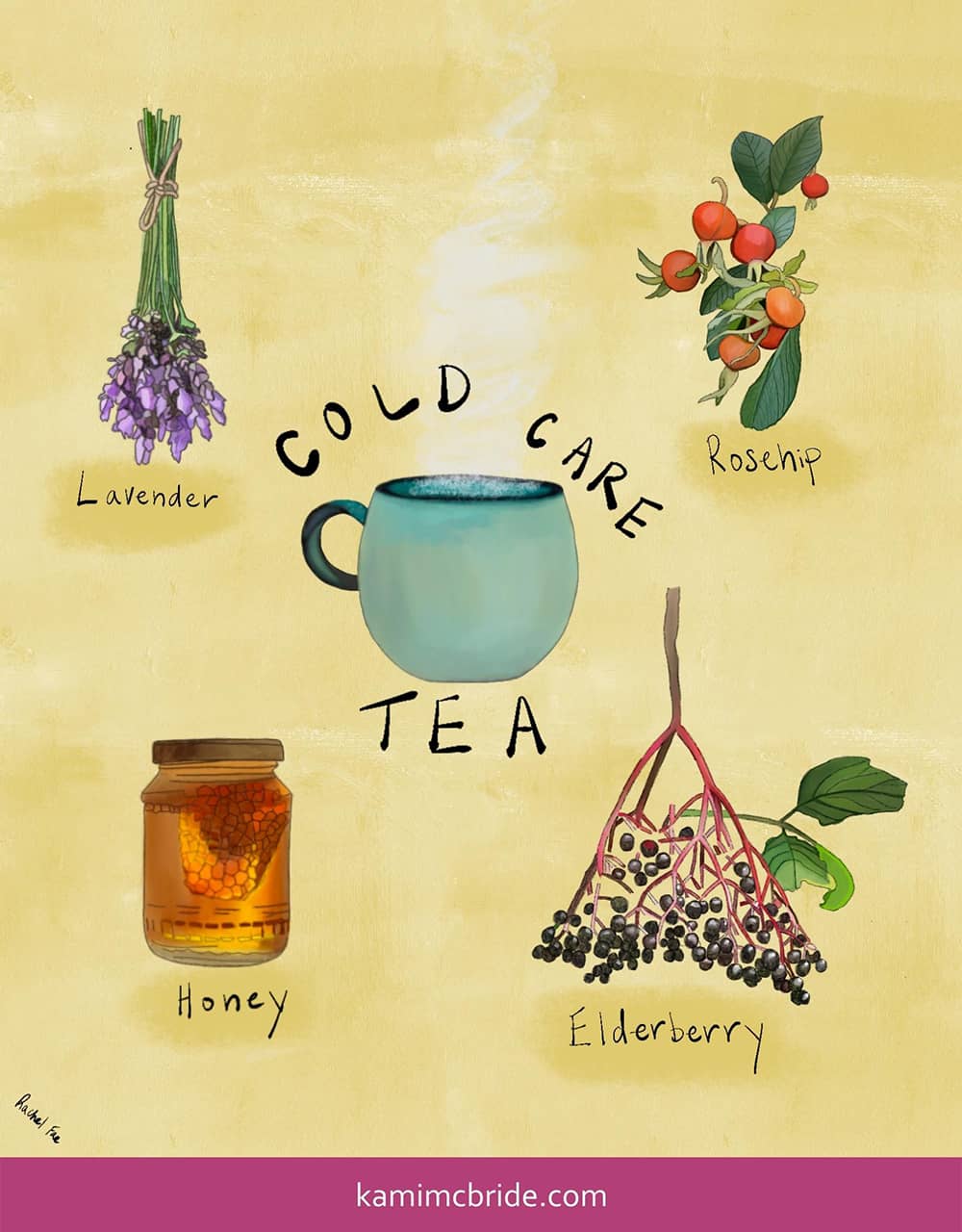
Cold Care Tea
One such example of a supportive recipe from The Herbal Kitchen is the Cold Care Tea recipe. An easy, gentle, and effective blend of rose hip tea, elderberry tea, and lavender infused honey. Teas are one of the best and easiest ways to nourish the body with nutrients and an act of preventative health when made part of our daily lives. They can be made enjoyable and delicious for children or anyone with picky tastes.
The easiest method for this herbal Cold Care Tea recipe is using loose herbs, fresh or dried, placed in a saucepan with water brought to a boil over medium-high heat. Immediately remove the saucepan from heat, letting herbs steep for 1 to 2 hours. Remove the herbs from the tea with a strainer. Herbs can remain in the tea if you plan to drink within the day.
You can also steep the herbs in a teapot with a mesh tea holder. Pour boiling water over the herbs and steep for approximately two hours. Remove the tea holder and pour tea into a mug mixed with the lavender honey. Relax and enjoy.
Cold Care Tea
Ingredients
- 1 tbsp dried rose hips
- 1 tbsp dried elderberries
- 2 cups water
- 1 tsp lavender honey (see below)
Instructions
- Place the rose hips, elderberries, and water into a covered saucepan. I use stainless steel Revere pots; glass and enamel pots also work well.
- Over medium-high heat, bring water and herbs to a boil, and then immediately remove from the heat. Let herbs steep for one to two hours.
- Using a metal strainer, remove the herbs from the tea.
- Pour the tea into a mug mixed with the lavender honey.
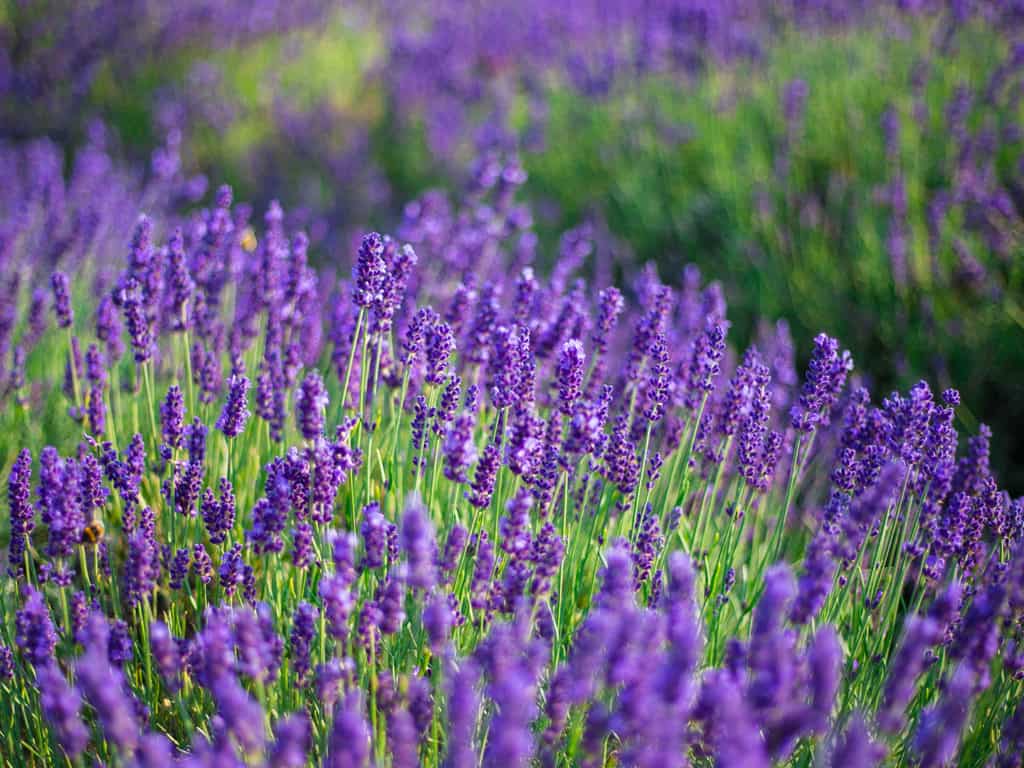
Lavender Honey
Lavender (Lavandula spp.) is one of the most widely used and abundant herbal remedies in the world. It grows easily and has a multitude of beneficial healing properties. When enduring a cold, lavender not only softens the impact of stress, but has powerful antibacterial and antiseptic effects whether used topically or ingested.
At the onset of a cold, we can quickly feel miserable. The nervine effects of lavender help to comfort the distress while we ride out a cold or dodge it completely. Lavender honey will coat the tongue, throat, and digestive tract, easily distributing its healing benefits when added to this tea.
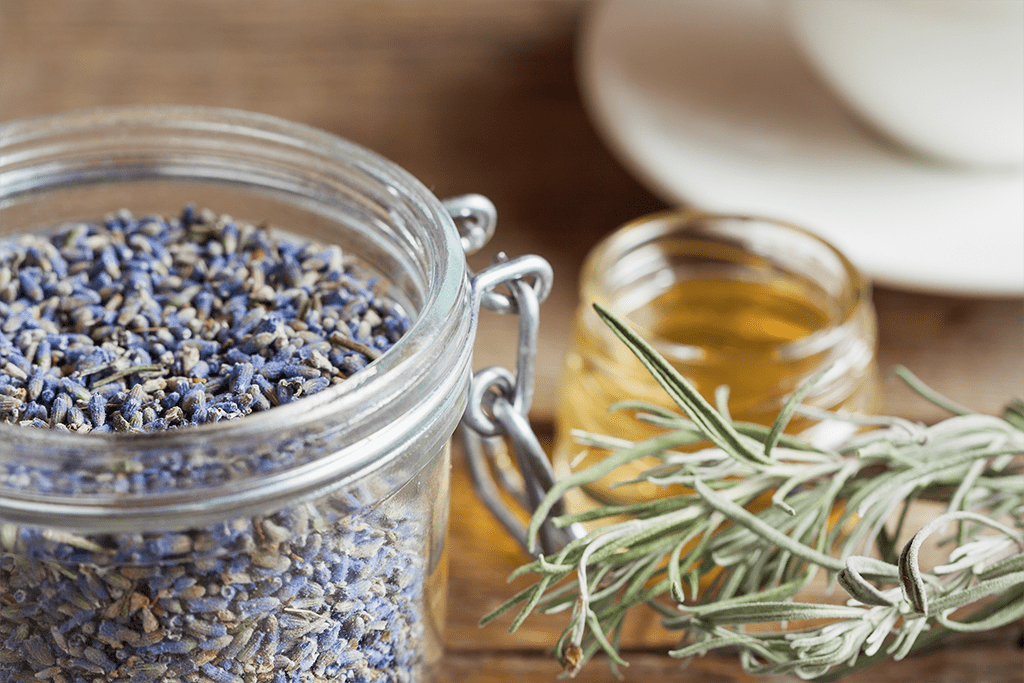
Honey is enhanced greatly by being infused with lavender. The two go together perfectly. Infusing the lavender in a local raw honey is best. This way the honey has not been hearted and all the beneficial enzymes remain. Raw honey is naturally antioxidant and antibacterial. The medicine of lavender is also delivered throughout the body more deeply.
Proportions are ¼ to ½ cup (4 to 48 g) of dried lavender to 1 cup (370 ml) of honey. Closer to ½ cup is ideal for therapeutic and medicinal recipes. Powdering your herbs makes for a more potent, tastier, and easier process. Place the herbs and honey in a sterilized jar and into a double boiler over low heat. Heat until just warm so the herbs can be easily mixed in. Remove the jar of honey from heat and let cool. Store for approximately two weeks giving the honey and herbs an occasional stir. It is now ready to use.
Lavender Honey
Ingredients
- 1/4 to 1/2 cup powdered lavender
- 1 cup honey
Instructions
- Put honey into a sterilized jar.
- Put the jar into a double boiler over low heat.
- Gently heat for 15 minutes, or until it is warm. Do not boil or overheat the honey, just warm it up until the lavender can be easily mixed in.
- Stir the lavender into the honey while it is still warm.
- Remove jar of honey from double boiler and let cool.
- Store the honey in a cabinet for 2 weeks before using.
- Occasionally stir the contents, mixing lavender thoroughly into the honey.
- Just leave the lavender in the honey as you use it. There is no need to strain the lavender out at any point. Herbal honeys have a long shelf life, approximately a year.
The Cold Care Tea recipe calls for 1 teaspoon of this lavender honey, but measurements can be adjusted with how great it tastes!
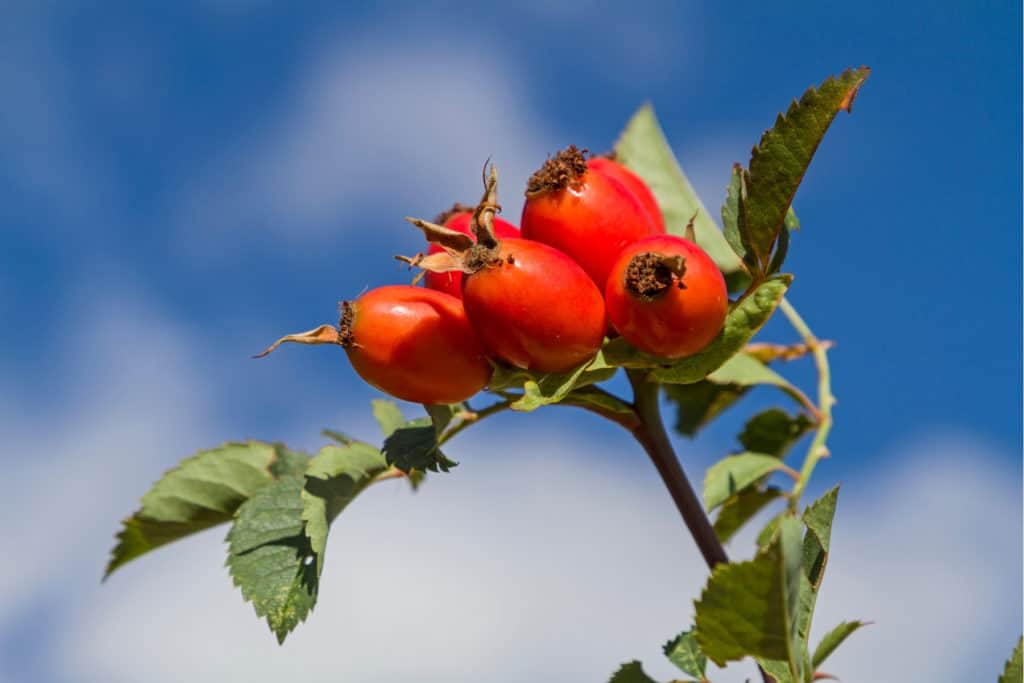
Rose Hip
Rose hip (Rosa spp.) is a true superfood having one of the highest plant sources of vitamin C and a plethora of other vitamins and minerals. Rose hips certainly help a cold. What is not always known about their anti-inflammatory flavonoids is they help protect the intestinal tract. This is just as important as our sinuses and lungs during a cold, our digestive system needs gentle support during the process.
Rose hip is wonderful to continue incorporating into your diet after recovering and all year long.
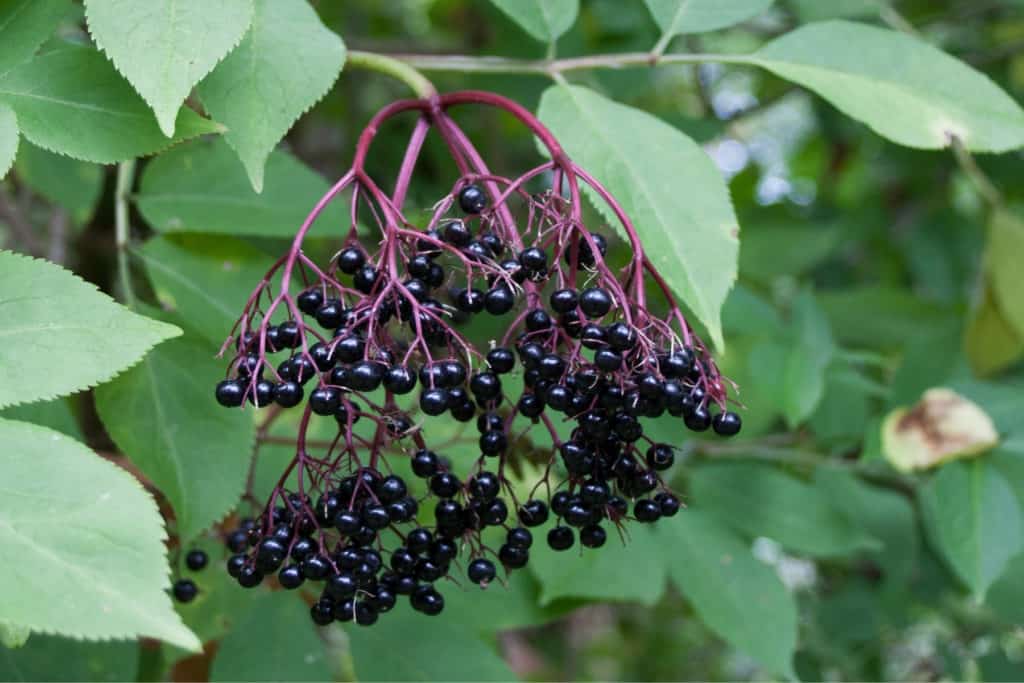
Elderberry
Elderberry (Sambucus mexicana and nigra) is best taken at the onset of symptoms. It is very effective at knocking out a cold or flu virus before it sets in. Knowing our bodies and the earliest signs of a cold, elderberry can be your greatest ally.
It is slightly bitter and drying, a great combination to clear phlegm as well as stimulate circulation helping to remove waste from the body. It is an excellent immunomodulator, giving our immune system the right balance it needs at a cellular level. With much scientific research to back up its antiviral and alterative properties, elderberry is also safe for most children.
The combination of these herbs not only smells and tastes great, its effects start to work when you begin to inhale the calming aroma of lavender. Drinking tea is a ritual that can be incorporated into your daily routine for overall wellbeing. Try and take the time out when you are feeling run down and suspect a cold coming on. Just having the time to relax and take a deep breath with a warm cup of tea can make all the difference and keep a cold away.
I’d love to hear from you! What is your go-to herbal cold care tea? Please share in the comments below.
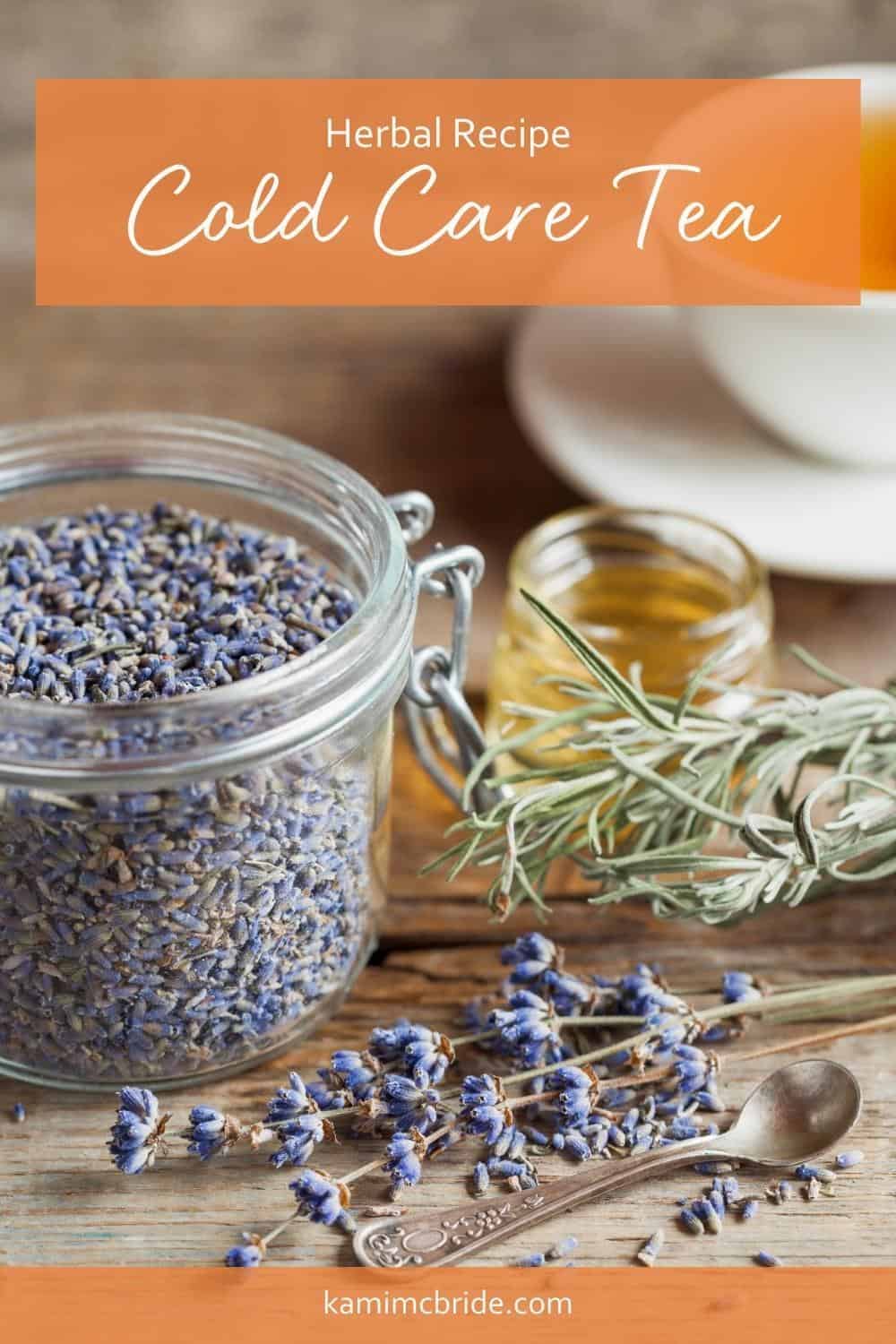

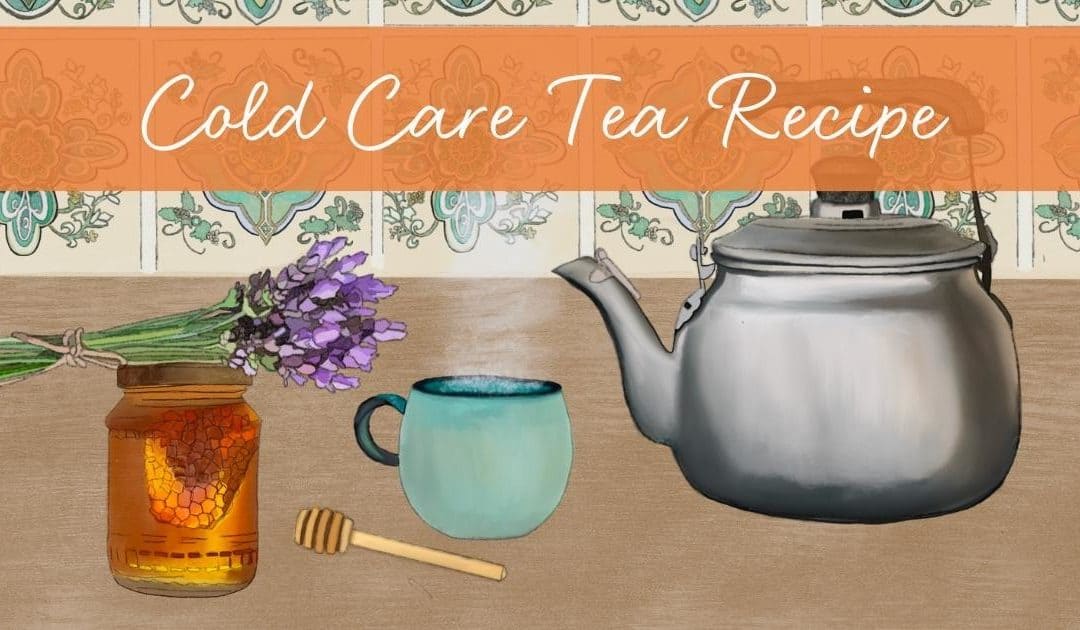
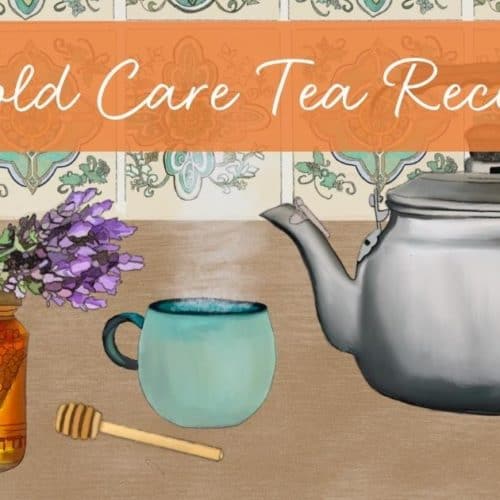
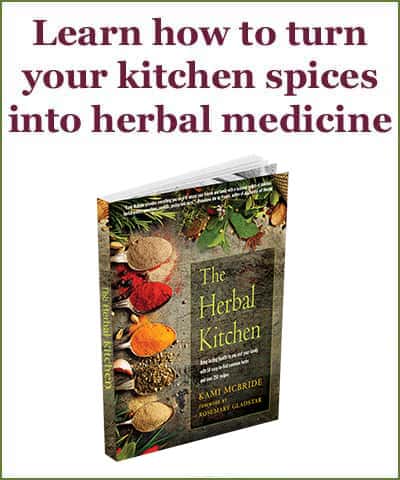
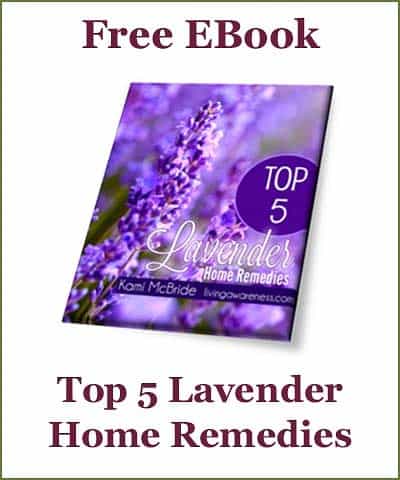

Hey can we use any Rosehip? I do have a rosebush in my garden and it has produced plenty of rosehips!
As long as your rosehips are organically grown, yes, you can use them in tea. Leave them whole and simmer them. Yum!
Thank you, Kami. Just printed them out and look forward to making the tea!
You are welcome, enjoy and may they support you in the way you need
It looks like a recipe my mom used to have. I forgot how healing herbs are. Suggestions for obtaining herbs to make the tea & honey?
Mountain Rose Herbs is great: http://aspireiq.go2cloud.org/aff_c?offer_id=24&aff_id=1886
Thank you Kami,I look forward to making my own lavender honey
Thanks for the Cold Care Tea recipe book. It’s so beautiful AND POWERFUL! Can’t wait to try these out.
I love all the information you share! Useful, practical, empowering. Deep gratitude.
Thanks for the recipe Kami! I just dried my first rose hip harvest and it will be fun to try your Cold Care Tea! I also have dried lavender on hand so will give the honey a try too!
Where is the best company to select for the organic elderberries and rose hips?
Thank you for the awesome recipes.
Mountain Rose Herbs is great: http://aspireiq.go2cloud.org/aff_c?offer_id=24&aff_id=1886
Thank you Kami for all the wonderful recipes you have shared to help us care for our families
Thank you for the lavender honey tea recipe. It really looks inviting and is easy enough to make too. I didn’t know rose hips were considered a superfood and contained vitamin c. Very interested in trying your recipe for lavender honey, rose hips and elderberry.
Thank you dear Kami!
I have everything I need tomake the lavender honey so that will be my project this week….thank you, Kami.
Looks wonderful. I will start Lavender Honey today, so this will be ready. Thank you!
You do such a good job of explaining and your recipies are easy to follow. I’m a very happy reader. Thank you !!
so glad you are inspired!
I love black tea with lemon. Tastes so good.
Can u use the lavender leaves, not just the blooms. It may be the type of lavender I am growing,not to many blossoms.
Love homemade recipe, most people over look natural remedies, the sky rocketing cost or empty shelf’s it’s time to go back to homemade remedies